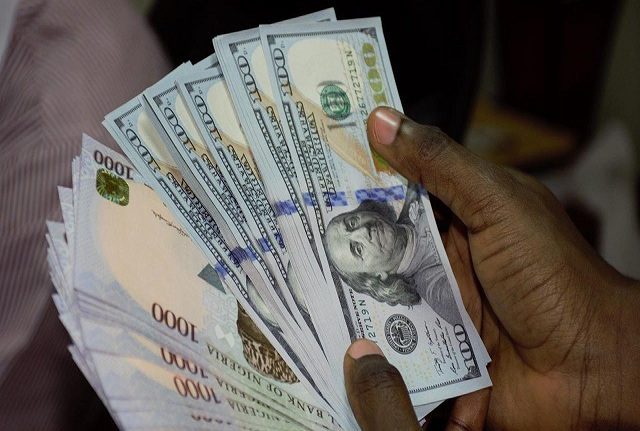Currency dealers who had been stockpiling dollars in anticipation of a further decline in the exchange rate of the Naira have begun selling the greenback at a loss as the Nigerian Naira soared against the US Dollar on the black market after reaching a record low of over N900/$1 the week prior.Information Guide Nigeria
Over the course of five days, the dynamics of the foreign exchange market shifted in favor of the local currency, as the Naira gained over N200 to trade at an average of N680/$1 as of the close of trading on Friday, November 11, 2022.
In a conversation with several black market traders on Friday, Nigerian Tribune learned that the US dollar was selling for between N714/$ and N680/$ in cash transactions, a 28% increase from the N870/$1 recorded in major street tradings last Friday.
Other Top Stories:
The sudden increase in the value of the local currency has been attributed by black market traders to reduced demand and increased FX inflows.
Other market observers believe the Central Bank of Nigeria (CBN) must have intervened in the market to halt the free fall of the Naira, which was already headed towards N1,000/$1.
The CBN has always had a policy of intervening in the various foreign exchange markets, including the investors and exporters (I&E) and the interbank market.
Secondary Market Intervention Sales (SMIS) windows, respectively, as a result of the foreign exchange supply difficulties encountered in those markets.
As a result, this decline in foreign reserves was primarily precipitated by this frequent intervention to save the local currency.
The most recent data obtained from the CBN website indicated that Nigeria’s gross external reserves decreased by 8.07 percent or $3.27 billion over the course of ten months, settling at $37.25 billion at the beginning of November from $40.52 billion at the beginning of the year.
The decline could be attributed to the lack of petrodollars flowing into Nigeria’s economy despite the increase in crude oil prices as a result of a rise in oil demand since the Russian invasion of Ukraine in February 2022.
“Nigeria’s gross reserves have slid in spite of higher oil price which we do not see rising soon on the back of rising imports as well as the continued demand for foreign exchange to finance services such as school fees, medical tourism, etc. We see a combination of these factors to continue exerting pressure on external reserves and exchange rates as we drive closer to the 2023 general elections.
“Having said that, we can add that low inflows of foreign investments into the economy in the face of a challenging business environment will trigger further depreciation in the exchange rate due to pressure on the local currency and raises concerns for the apex bank,” analysts from Cowry Assets Management Limited said.
Since the beginning of the year, the Naira has depreciated against the dollar by almost five percent (N23.43/USD) to N446.10/USD as of November 10, 2022, from N422.67/USD at the Investors and Exporters FX window at the beginning of the year.
In a similar vein, Nigeria’s gross official reserves decreased by around $866 million in October to $37.3 billion.
This amount is the second highest since May of this year and follows a $772 million reduction in September of 2022.
Brent crude trades above $96 per barrel at the time of writing in response to the news that China has taken moves to remove the COVID-19 restrictions it had previously placed.
Despite the fact that the oil price reached a high of $123 per barrel in June of this year, Nigeria has earned little or nothing from oil sales this year.
Analysts linked this to the low productivity of the oil industry as a result of widespread crude oil theft and pipeline damage.JAMB Result
Check JAMB Result
Check and Confirm: How much is Dollar to Naira
source
For more such interesting article like this, app/softwares, games, Gadget Reviews, comparisons, troubleshooting guides, listicles, and tips & tricks related to Windows, Android, iOS, and macOS, follow us on Google News, Facebook, Instagram, Twitter, YouTube, and Pinterest.


































